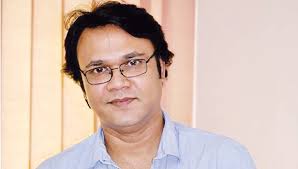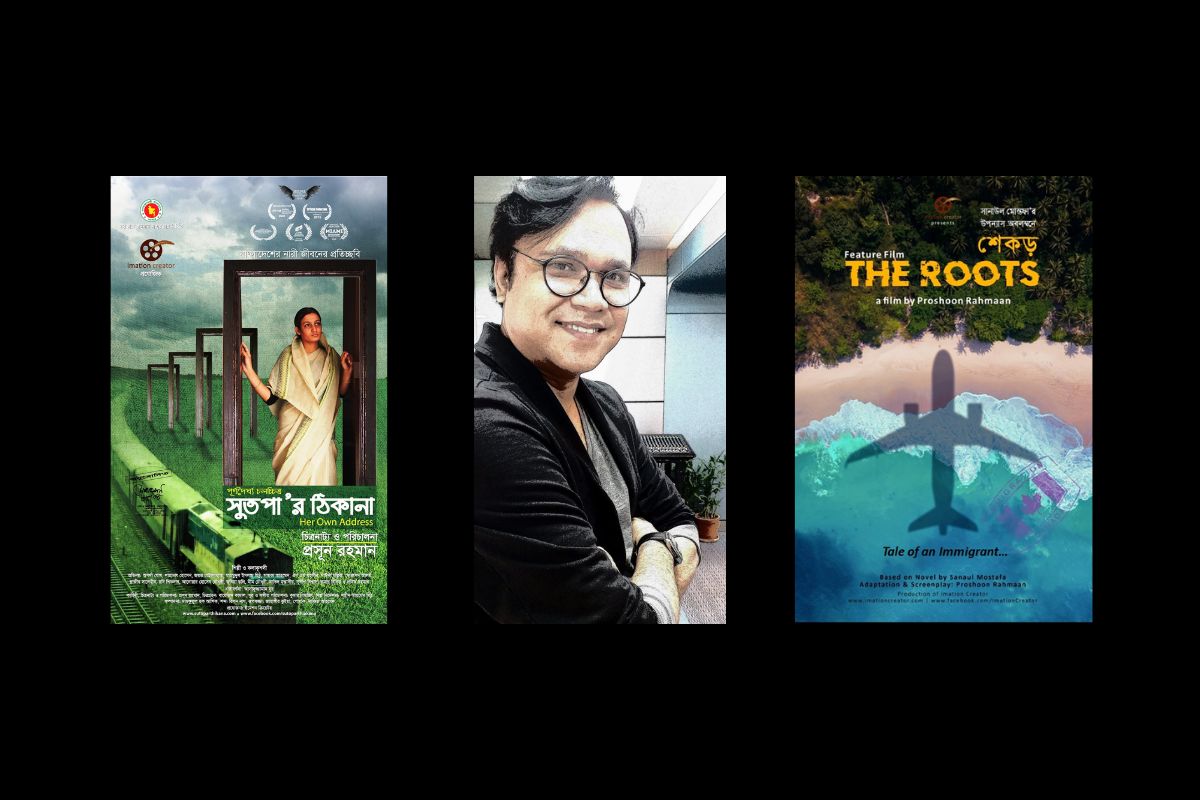
Published: : August 10, 2025, 09:49 PM

A Migration is not just a word—it’s a wound, a dream, a struggle, and sometimes, a silent scream. For me, as a filmmaker and storyteller, the subject of migration has always been more than a topic. It’s been a deep and personal interest, something I keep coming back to in almost all my films. In different forms—forced or voluntary, internal or across borders, visible or emotional—I have tried to explore what it means to leave something behind and search for a new identity, a new place, a new sense of belonging.
Most of my films, directly or indirectly, deal with migration, identity, and displacement. These are not just social issues to me—they are human conditions. The way people move, settle, adjust, resist, or even lose themselves in the process—this existential complication is what draws me in. I often ask, 'Who are we when we are uprooted?' What do we carry, and what do we leave behind? How do borders—not just physical but emotional, social, cultural—shape or break us?
We are living in a time when movement—both chosen and forced—is shaping the world. Climate change, war, economic hardship, political instability, urbanization, globalization—all these push people to migrate. But in many films, migration is either reduced to headlines or statistics. What’s missing is the human face of migration—the emotions, the inner conflicts, the dreams that people carry while leaving their homeland.
Cinema has the power to bring those silent struggles to light. I believe that sharing such stories can foster empathy and understanding. Migration is not only about crossing a border—it’s also about losing your language, being misunderstood, rebuilding identity, finding love in new places, or even feeling like a stranger in your own home.
I didn’t start out planning to make films on migration. But when I look back, I realize that almost every film I’ve made touches this theme in some way. My first feature 'Her Own Address' (Sutopar Thikana) portrays womanhood in South Asia—how women go through different stages of life, often depending on others for their identity, safety, and even a physical address.
It’s about internal displacement—how marriage, poverty, social judgment, or simply being a woman and dependency, can push someone to feel dislocated within her own society. In this film, migration is emotional and social, not just geographic.
Feature film 'The Birth Land' (Jonmobhumee) was made in the world’s largest refugee camp in Cox’s Bazar, Bangladesh, where Rohingya refugees have taken shelter. We filmed in real locations with real people, with very few professional actors. The film explores forced migration—how people are stripped of nationality, treated as a burden, and yet they hold onto hope. It’s a mix of fiction and documentary, blending real lives and imagined journeys to show the pain of being stateless.
At my third feature 'Dhaka Dream', which is the story of outlying people coming to the capital from different parts of the country in search of a better life. It reflects on internal migration, how cities like Dhaka absorb millions, offering both promise and pain. The film talks about dreams, disappointments, and the invisible battles of those who leave their homes behind but never fully belong anywhere. It also raises the question about reasons of internal displacement and requirements of decentralization.
And The Roots (alternatively- Immigrant) is my latest feature film. A Bangladeshi-Canadian immigrant returns to his homeland after twelve years to reconnect with his roots. It’s a personal journey, full of emotional contradictions. The film explores international migration, how memories, regrets, and identity travel with us. Even if we live abroad, the past never really leaves us. The film also try to explore- can anyone ever truly go back home or not!
Through my journey, one of the key things I’ve learned is that most people don’t migrate because they want to. They migrate because they have to. Whether it’s to escape war or poverty, to find work, or simply to survive—migration often comes from helplessness. But at the same time, it also comes from courage. It takes strength to start over.
Even those who migrate 'legally' or through privilege, like through citizenship schemes or global passports, are often driven by insecurity, ambition, or fear of being left behind. This is something I will try to explore in my next film. The film looks at how people from different social classes in Bangladesh try to buy citizenship in Western countries, and what this means for identity, morality, and the global power imbalance.
One thing I try to show in my films is that migration doesn’t end at the airport or the city gate. It continues inside the person. People become torn between past and present, between the language they speak and the one they dream in. Many migrants live in a limbo—never fully accepted in the new place, and no longer belonging to the old one. This emotional and psychological state is something cinema can portray deeply and honestly. As a filmmaker, I find this gray zone of identity—this in-between space—very powerful. It opens up questions rather than giving answers. And that’s what I try to do in my storytelling.
I grew up in Bangladesh but have travelled, studied, lived, and worked in different places. I’ve always felt connected to stories of people who are in transit, in search, in confusion. I’ve worked with refugees, migrant workers, rural poor, vulnerable, non-privileges and diaspora communities. My objective is not to represent them, but to create a space where their stories can be heard with dignity and honesty. I believe, Cinema has the power which can make people see things they often ignore. I don’t try to make films that preach. Instead, I try to create moments that stay with the audience—sometimes through silence, sometimes through a look or a landscape. The films we make with limited resource, if it can make someone pause and reflect on what it means to be home or to be lost—that’s enough for me.
Again, Migration is not going to stop. In fact, it will grow even more in the coming decades—with climate displacement, economic gaps, and political unrest. That’s why we need more stories, more films, more conversations on this issue. Not just from the West, but from every parts of the world—from people who live and breathe these realities every day. Migration is not just about the journey—it’s also about the cost, the loss, and the reinvention of self.
My journey as a filmmaker is ongoing. I don’t follow a fixed style or method—I prefer to explore, question, and evolve with each passing day. But one thing remains constant: my deep interest in the human condition—identity, belonging, displacement, and migration. What troubles others troubles me just the same. To me, these are not just themes; they are urgent truths of our time. Through my work, I hope to contribute—however modestly—to a deeper understanding of what it means to move, to search, and to belong.
If cinema can give voice to the voiceless, bring dignity to the displaced, and help us understand each other a little better, then it’s worth making.